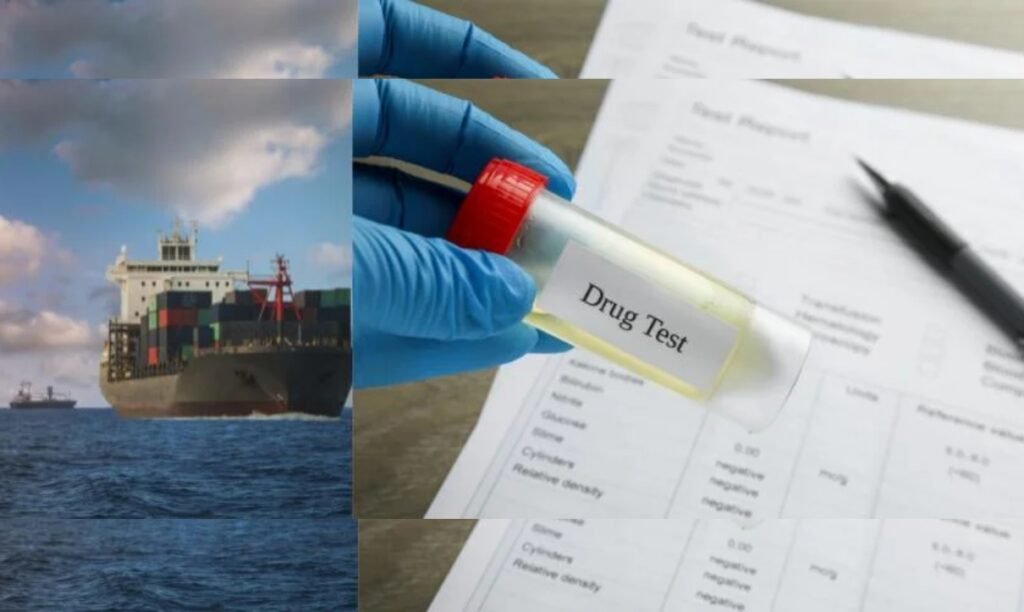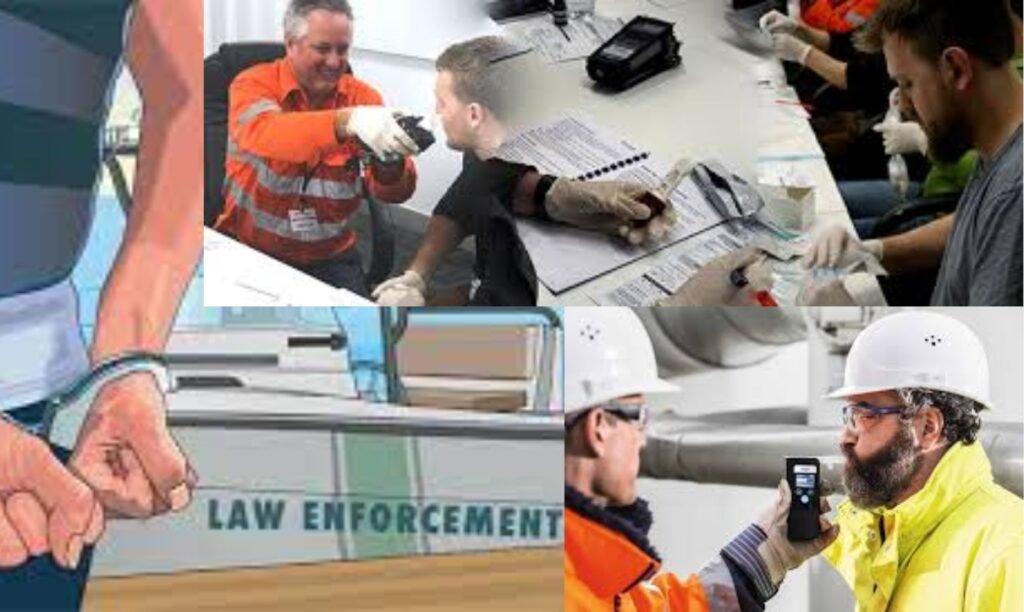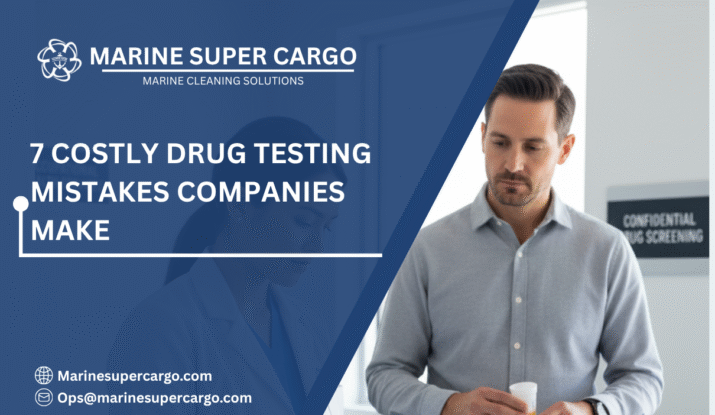Top Mistakes Companies Make in Drug & Alcohol Testing
When it comes to workplace safety and compliance, drug and alcohol testing seems straightforward. But here’s the catch—many businesses unknowingly commit critical errors that weaken their programs. These Drug Testing Mistakes don’t just risk safety; they damage compliance, trust, and corporate reputation. Think of it like steering a ship with a miscalibrated compass—you might not see the mistake at first, but the deviation becomes clear down the line. This guide reveals the biggest mistakes companies make with testing programs and how to avoid them.
Why Avoiding Drug Testing Mistakes Matters
Companies treat testing as routine, but overlooking details can create legal, reputational, and financial risks. If employees doubt fairness or results, trust erodes. Poor testing practices can also open businesses to lawsuits or compliance failures. Global regulators like the IMO and IMCA emphasize strict adherence to safety frameworks. Avoiding Drug Testing Mistakes protects credibility, prevents costly disputes, and shows regulators, investors, and clients that your company prioritizes both efficiency and accountability.
Weak or Vague Policies
One of the most common Drug Testing Mistakes is failing to set a clear, transparent policy. Policies act like navigational charts; without them, confusion arises. If employees don’t understand what’s expected, mistrust builds quickly. Effective policies should specify exactly which substances will be tested, the process that will be followed, and the consequences of positive results. This clarity prevents disputes and reassures staff that testing is conducted fairly. Much like the MARPOL Convention defines pollution control in shipping, clear drug testing frameworks ensure everyone knows the rules.

Overlooking Random Testing
Some companies rely entirely on scheduled tests because they seem easier to manage. However, predictability weakens deterrence. Employees can prepare ahead and skew results. Overlooking random tests is a major Drug Testing Mistake, as it can undermine program credibility. Random testing promotes fairness by applying to all staff equally while discouraging misuse through unpredictability. Think of it like surprise safety drills—nobody enjoys them, but they keep everyone sharp and accountable. Also read about Ensuring safer seas with 0 risks through cargo safety testing.
Ignoring Legal and Ethical Boundaries
A critical Drug Testing Mistake is conducting testing without respecting privacy laws. Different jurisdictions require consent, confidentiality, and clear justifications for tests. Without legal compliance, testing turns into a liability rather than a safeguard. Employers must work with accredited providers and ensure proper chain-of-custody procedures to protect employees’ rights. For global industries, aligning with IAPH standards also signals professional responsibility. Ignoring these boundaries not only damages trust but also risks expensive legal battles.
Poor Communication with Employees
Implementing a testing program without educating employees is another frequent pitfall. Lack of communication often leaves room for suspicion or resentment, damaging morale. Effective communication means explaining “why” the policy exists and “how” it protects everyone. Neglecting this step is a subtle Drug Testing Mistake that increases pushback. Transparency transforms testing from punishment into prevention. Just like safety signage aboard vessels helps crews navigate risks, clear communication empowers workers to embrace responsible practices. Also, read about Employee Alcohol Testing.
Mishandling Positive Results
Many organizations mishandle results by either ignoring them or enforcing overly punitive measures. This is among the most damaging Drug Testing Mistakes. Treating positive outcomes rigidly creates fear and resentment. A better approach balances accountability with support. Offering Employee Assistance Programs or rehabilitation can help employees recover while maintaining safety. Think of it like early hull maintenance: fixing issues before they escalate preserves both the vessel and the crew. Similarly, fair handling preserves trust and reduces attrition.
Using Outdated Technology or Methods
Testing methods evolve constantly. Companies relying on outdated equipment risk inaccurate results—another common drug testing mistake. Modern programs use saliva, urine, or hair follicle testing, supported by lab accreditation and AI-driven randomization. These tools eliminate bias, improve accuracy, and reinforce credibility. As maritime sectors embrace eco-friendly hull cleaning technologies to meet sustainability rules, corporates must also adopt reliable testing innovations to ensure they remain trusted and compliant.
Failing to Review and Update Programs
Drug testing isn’t a “set it and forget it” system. Companies often make the drug testing mistake of never reviewing their programs. Workforces evolve, regulations change, and so must policies. Regular monitoring helps identify patterns of improvement or gaps. This continuous process, much like routine vessel inspections, prevents risks from growing unnoticed. Reviewing programs also reassures regulators and partners that safety isn’t stagnant but actively managed.
✅ 4 Things to Check for Safety at Sea pic.twitter.com/dAxhJQ2i6U
— Marine Super Cargo (@Marinsupercargo) September 14, 2025
Marine Supercargo Expands Services: Drug & Alcohol Testing for Safer Seas
Marine Supercargo, renowned for its global hull cleaning expertise, has extended its services into Drug & Alcohol Testing solutions. For the maritime sector, where impaired performance can lead to costly delays or even environmental disasters, this service delivers critical value.
By integrating drug testing into its offerings, Marine Supercargo supports ship owners, operators, and managers in aligning with international compliance requirements under IMO and IMCA. This expansion offers comprehensive safety coverage: hull cleaning ensures vessel efficiency, while testing ensures human reliability. Together, they safeguard operational performance, compliance, and corporate trust. For fleet managers juggling tight schedules under global scrutiny, this development strengthens both safety frameworks and reputation protection.
The Link Between Testing and Reputation
Ignoring or mismanaging testing programs often creates reputational risks. Stakeholders judge companies on both operations and employee welfare. Falling short in this area demonstrates disregard for safety. Avoiding Drug Testing Mistakes signals responsibility and foresight. Just as hull cleaning prevents inefficiencies that damage a ship’s reputation in ports, effective testing practices protect corporate credibility. Reputation is one of the hardest assets to rebuild once damaged, making careful management essential.

Future Trends in Drug Testing Programs
The future will emphasize integrating drug testing with broader wellness frameworks. Expect AI-driven systems, real-time biometric monitoring, and seamless links with employee health initiatives. Corporations that invest in these trends minimize Drug Testing Mistakes while boosting resilience, compliance, and trust. Much like the shipping sector adapts to sustainable practices under MARPOL regulations, businesses will evolve programs to align with corporate social responsibility and stakeholder expectations. The intersection of technology, ethics, and safety will redefine testing strategies.
Conclusion
Drug and alcohol testing, if handled poorly, creates more problems than it solves. Companies often commit costly drug testing mistakes, such as unclear policies, ignoring random testing, outdated technology, and poor communication. Smart businesses avoid these pitfalls by embracing compliance, fairness, and continuous improvement. Doing so builds credibility, improves safety, and protects long-term reputation. For organizations seeking future-ready safety practices, integrating strong testing programs with sustainability-driven solutions is essential. Explore cutting-edge guidance at CleanShip.co for compliance and operational reliability.
FAQs:
Q1. Why is it important to avoid Drug Testing Mistakes?
Because errors expose businesses to compliance failures, lawsuits, and reputational harm. Well-designed programs foster safety, accountability, and trust.
Q2. How do random drug tests reduce risks?
Random testing creates unpredictability, discouraging substance misuse. Unlike scheduled testing, it ensures fairness and provides stronger compliance credibility.
Q3. Why is technology important in preventing Drug Testing Mistakes?
Modern testing methods and AI-driven systems improve accuracy and impartiality. Outdated approaches risk mistakes that undermine credibility and fairness.
Q4. How does drug testing connect to vessel cleaning?
Both reduce inefficiencies and compliance risks. Clean hulls optimize performance, while drug testing ensures reliable crews—together, they secure operations.
Q5. What’s the future of corporate drug testing programs?
Expect smart testing systems integrated with health initiatives, creating proactive, fair, and compliant programs that reduce drug testing mistakes long-term.


